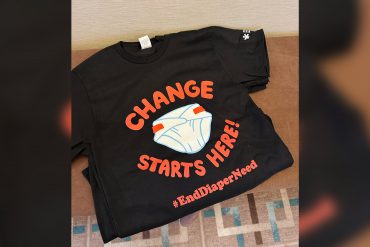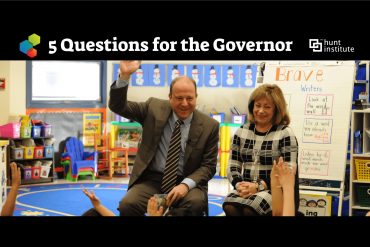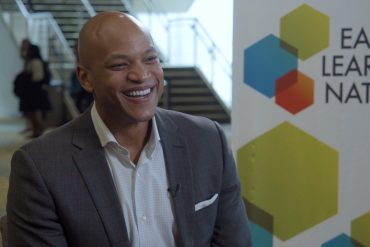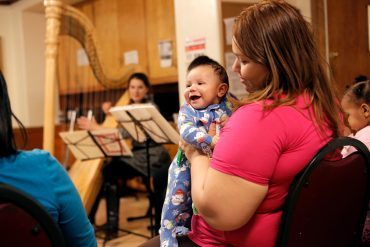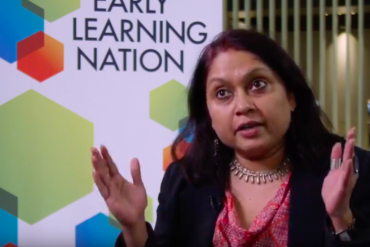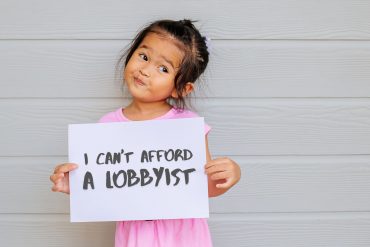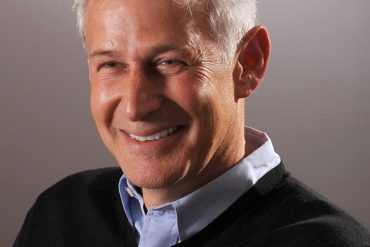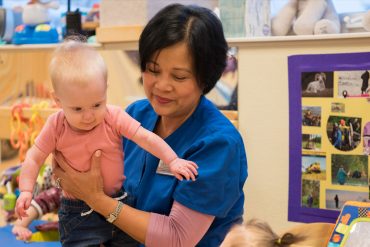Did you know that infants require up to 12 diapers per day? Did you also know this can cost families...
Colorado has fared better than many of our neighboring states because the people of this state have been taking this pandemic seriously -- wearing masks, staying at home, keeping their distance from others, practicing proper hygiene and protecting at-risk populations like older Coloradans and those with underlying health conditions. I’m proud that by-and-large, Coloradans are doing right by each other. We wouldn’t be making progress as a state if people were ignoring these crucial public health recommendations.
Want to fight poverty? Robin Hood CEO Wes Moore – bestselling author, Army combat veteran, social entrepreneur – explains why improving education is an excellent place to start. Filmed for Early Learning Nation’s Mobile Studio at the Society for Research in Child Development’s biennial meeting in Baltimore, MD, on March 22, 2019. #SRCD19
When we hear the word, “lullaby,” most of us imagine something like the dictionary definition of “a gentle, quiet song that lulls a child to sleep,” a cradle song to soothe a baby’s way to the Land of Nod. For the past 12 years, Carnegie Hall’s Weill Music Institute has been refining that definition with its Lullaby Project.
In our talk of care, we frequently focus on questions of where, who and what. We rarely ask questions of why we care and what it means to care. Similarly, much of the modern care conversation centers around (very real!) struggles and scarcity. That’s why I was so pleased to read journalist Elissa Strauss’ new book, When You Care: The Unexpected Magic of Caring for Others.
Cast in America as a pay-to-play system with limited public funding, child care has long struggled with issues like difficult budgetary math, low educator pay, and highly variable quality. An unprecedented degree of investor activity is creating a cascade of risks for the sector, risks which threaten the path toward an inclusive child care system which works well for all children, parents, and early educators.
For many children in India, getting to early education centers is impossible while their parents work long hours at often temporary jobs. So what if early education centers traveled to kids instead? Executive Director Sumitra Mishra describes how Mobile Creches has been doing just that for 50 years.
Last month, I wrote about how child care’s lack of salience in the public imagination is holding back its political opportunities. The absence of mass public pressure is one piece of the puzzle. Another piece is that by and large, child care lacks a strong inside game.
The Covid-19 pandemic ushered in unprecedented federal spending in the child care industry. When schools and child care programs shut...
The question that parents and practitioners really want to know is this: How safe are child cares? Or, put another way, how likely is my child (or am I) to catch COVID-19 from a child care center? In order to know that, we need to be able to answer how much transmission is occurring WITHIN child care centers? Until we ask the right questions and demand the right data, we’ll be stumbling in the dark.
When Jack Shonkoff speaks, the early childhood field listens. Shonkoff, a pediatrician who leads Harvard’s Center on the Developing Child,...
Author’s Note: This moment, when the world has stopped spinning on its axis, presents an important opportunity to re-examine our...


